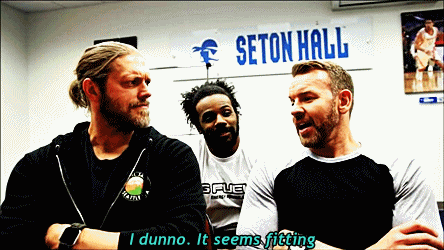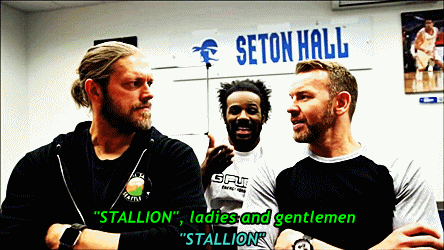#Creeds of Christianity
Explore tagged Tumblr posts
Text
Comparative Theology on the Nature of the Father - Rejecting the Valentinus Gnostic Heresy and Gnostic Heresy of the Trinity
Photo by Tima Miroshnichenko on Pexels.com At 15 years of age, a young man by the name of Joseph Smith entered into a wooded place near his home and prayed. This has become known as the First Vision where Joseph Smith records various religious denominations engaged in preaching and proselytizing individuals. Upon reading James 1:5, he shares that he had determined to seek God for answers to his…
#Arianism#Arius#Bible#Christianity#Comparative Theology#Creeds of Christianity#Deity#First Vision#Gnostic Heresy#Gnosticism#God#Jesus#Jesus Christ#Joseph Smith#New Testament#Nicaea#Nicene Creed#Old Testament#Subordination#Theology#Trinity#Truth in Love Ministries#Valentinus
0 notes
Text

‘Jesus Christ in Sorrow in Gethsemane’ - Carl Heinrich Bloch
⠀ ⠀ ⠀ ⠀ ⠀ ⠀ ♰
#Catholic#Catholic art#Catholicism#catholic clutter core#catholic academia#Catholic core#catholic guilt#Christian art#Christianity#catholica#catholic aesthetic#Catholic Church#Jesus Christ#Rosary#nicene creed#roman catholic#Roman Catholicism#catholic girl#coquette catholic#girlblogging#girlblogger#lana del rey#lux lisbon#Holy Bible#Bible Verses#Appalachia#cathedral#Catholic painting#Catholic blog#girly things
778 notes
·
View notes
Text

confession
trembling lips pressed against bony fingers. something burns inside yusuf; an undulating pit of tar in his stomach. he knows the name of this feeling—envy.
my acsona yusuf and oc john
#local man raised in an islamic sect gets jealous that christians can 'worship' their monks#—immediately left without doing what he initially came for#dabbling back into assassin's creed and got waaay too into my silly ac-sona so here#have a religion crisis#oc: yusuf#oc: john#asscreed#my art#assassins creed 1#assassin's creed 1#assassin's creed#assassins creed#ac1#ac#TECHNICALLY;#altmal#(bcs yusuf is the son of altmal)#assassins creed oc#assassin's creed oc#religious imagery
89 notes
·
View notes
Note
it is absolutely not necessary to believe in a literal body resurrection to be Christian. this literalization of important stories does not make things more real.
for many people a literal body resurrection and a literal general resurrection of the dead are very definitely non sensical.
we are not bound to the 4th century worldview. the way Christians have understood Christianity has always been subject to evolution. the creation of the literal bodily resurrection you can see evolve in the new testament
Paul and Mark have no bodily resurrection. Matthew has visitations but in a way similar to the theophany @ sinai, a coming down from heaven.
John and Luke as the latest gospels have mixed aspects of their experience. experience that indicate a bodily resurrection tradition was. beginning by then.
I have to respectfully disagree. If you don't believe Jesus was physically raised from the dead then you are not believing the gospel. If a literal bodily resurrection is non-sensical, how do you deal with the raising of Lazarus? Do you pick and choose which of Jesus' miracles to believe in? Biblical literalism is not necessary in all cases, many parts of the Bible are written like poetry or literature to give us a better understanding of God, like the creation stories in Genesis, but this is not the case with accounts of Jesus' life. The gospels repeatedly ask you to believe the seemingly unbelievable. I'm not going to quote a load of scripture at you, but the New Testament does not support your view on this.
It is necessary to believe in the bodily resurrection of Jesus Christ as a Christian because God conquering human death is the foundation of our faith. Otherwise, what makes Jesus different to Elijah, who was taken up to God? The physical resurrection cannot be extracted from the belief of Jesus as our saviour. Plus, the Bible explicitly shows us that Jesus' physical body is resurrected, with Thomas touching Jesus's wounds still present on his body from the crucifixion.
Also, you imply that you believe Matthew and Mark to be true over Luke and John, because they came later and due to reasons of plausibility? Do you believe the gospels are divinely inspired or not? Don't get me wrong, you can be both a religious scholar and a Christian, but to be one doesn't make you the other. Being a Christian requires belief.
Also *out of breath* the Nicene Creed. God give me strength why does everyone think they just know better. It contains everything mandatory to believe to be a Christian.
"For our sake he was crucified under Pontius Pilate, he suffered death and was buried, and rose again on the third day in accordance with the Scriptures. He ascended into heaven and is seated at the right hand of the Father."
Died -> buried -> rose -> ascended, not died -> buried -> ascended. There is no ascension without resurrection. The literal belief in THE key foundational concept of Christianity does in fact make things more real. Otherwise what is your faith based on?
#asks#christianity#jesus christ#the resurrection#resurrection of jesus#catholicism#nicene creed#theology#Christian faith#christian theology
71 notes
·
View notes
Text
Who was gonna tell me Arno wrote letters to his late father. Who was gonna tell me that in these letters you see a little boy pray that his father is in Heaven to a young man asking why God hates him to hoping there is a God and Heaven so that his father and father figure can rest to a man so disillusioned and scarred that he cannot possibly believe there is a just deity judging us for our sins.
Who was gonna tell me you can see in his letters the steady decline of his faith in God and the world because how could a man so scarred and jaded ever believe in a god if God never seemed to believe in him. What. WHAT.
#assassin’s creed#arno dorian#arno victor dorian#ac unity#charles dorian#like WHAT.#WHO THE FUCK WROTE THIS#YALL CAN WRITE THOSE LETTERS BUT YOU CAN FIX THE BUGS IN UNITY???#OKAY BRO.#genuinely started crying a bit when I read the little Arno letter#Arno I love u I’m so sorry you can’t catch a break#dude I’d be an alcoholic too if I was him what the fuck#babblingbrook babbles#I am Christian right so it didn’t escape me noticing how the ‘He’ referring to God turned into ‘he’ I’m ill
100 notes
·
View notes
Text
Sometimes, I randomly think about how in the novel Altair was so disgusted with that one Christian target throwing a party with wine because it went against his own holy book (alchohol was like a big nono in the Bible at that time) and I just imagine him in the modern day just being so annoyed with most modern Christians for this same reason
#oh he would hate all Christians#i just imagine him going on a long rant about how many christans yell at “sinners” and then turn around and eat pork#he would be LIVID#assassin's creed#altair ibn la'ahad#altair
28 notes
·
View notes
Note
Maybe I should be asking an Orthodox person this, but I do not understand the hubbub with the Filioque. To me it is hair splitting, could you explain why it would not be hairsplitting? Or if there is an aspect I am missing as to why it was the final straw for a schism?
Okay, ah, I think there are two aspects that need to be addressed here. The first deals with the simple fact of its inclusion in the Creed, and I'm going to come off as a traitor here, so let me clarify my personal position; I believe the filioque best represents the reality of the Spirit's procession, but I think it was bad that the Western Church inserted it into the Nicene Creed.
As Henri de Lubac talks about in The Christian Faith, the Church allows for many theologies, spiritualities, customs, and liturgical traditions to coexist; "from one country to another and from one century to another there are many differences in emphasis." What connects all these elaborations and practices of the Christian faith is that they are all anchored in that faith, as revealed by God and distilled in the Creed. That faith is the unity of all Christians everywhere.
And what convinced me that the inclusion of the filioque was not a good move actually came from another Catholic thinker, Karl Rahner, who wrote "the inevitable pluralism met with in theology cannot and must not cause the unity of the creed of faith to disappear from the Church, even in its verbal expression." Except.... that's exactly what the Western Church did. It took the Creed as articulated by two separate ecumenical councils, and unilaterally added words to it. And while there are historical reasons for that inclusion, and while I think the theology behind its inclusion is true, I think modifying what was meant to be the unifying symbol of the Christian faith was not a good move. And I can see why the filioque inclusion seems like a rupture from the Orthodox tradition. Because... we have caused the unity of the creed of faith in its verbal expression to disappear.
And I think that's a bigger problem than the content of the filioque clause itself, to be honest. But, as far as the content goes, let's talk about that, too.
In the Orthodox perspective, the three Persons of the Trinity share a common nature, and there's a kind of symmetry where the traits of any given Person is either held in common by all three, or is reserved for one of Them. So, for example, the state of being uncreated and eternal are traits shared by all Persons in the Trinity, as is the fact that They are almighty and infinite. Those are traits derived from their divine nature. But in terms of traits distinctive to Their individual Personhoods, well: the Father is seen as the Source of the other two, while the Son is the only begotten Member of the Trinity, and the Spirit is the only spirated Member. An Orthodox Christian may argue that the filioque ruins this symmetry of Persons; if the Spirit proceeds from the Father and the Son, the distribution of Personal traits is no longer equal (two Persons have a trait that one Person does not have). This can be seen as a kind of ontological inferiority on the Spirit's end.
From the perspective of the Roman Church and Her western descendants, the articulation of the Trinity doesn't really involve this "common to All or particular to One" logic. Instead, we tend to use a sacramental logic that assumes that how the Persons of the Trinity operate within Their creation also tells us something about how They relate to each other from all eternity. So, the Father sends the Son into the world (John 17:1-4); hence the Father begets the Son. But the Father sends the Holy Spirit to the disciples "in [Christ's] name" (John 14:16-17, 26). So, the Father sends the Spirit, but the Son is somehow involved. The Holy Spirit is believed to still have one origin, but this one origin is the joint act of Father and Son. Part of this may have to do with different starting assumptions. Eastern Christians tend to start their thinking on the Trinity as Three existing in Unity, while Western Christians tend to start their thinking on the Trinity with One existing in Multiplicity.
But this is a super complicated subject, so if someone wants to correct me about either of the perspectives I tried to lay out, please feel free to do so.
#asks#Christianity#Catholicism#Orthodox Christianity#Holy Trinity#God#God the Father#Logos#Holy Spirit#Karl Rahner#Henri de Lubac#Creed
27 notes
·
View notes
Text


#Nicene Creed#christianity#orthodox christianity#religion#prayer#I couldn't post this as a texpost for some reason#So I made it in Word so I'm sorry it looks a lil ugly lol
166 notes
·
View notes
Text
Your "Biblical World View" is just 19th Century Enlightenment Propaganda

Is it just me, or does everyone stroking their ego about how "Biblical" they are, and how "Bible-Believing" they are (protestants, always), always seem to never actually believe the Bible?
I think so many of the tumors growing on the back of Sola Scriptura (where is that in the Bible?) are a result of late enlightenment, materialist philosophies, built on a bedrock of a hermeneutics of suspicion.
I saw a horrific example of this when I read someone discount John John 8:7-11 because, "Well, that section of John wasn't written by John, actually. It was added by scribes, so you shouldn't take it as seriously." Like, what? If this is your take, do you just not believe in any of the Bible? If some part is less Divinely Inspired, if it is less the Word of God, how is any of the Bible to be believed?

This is very funny, please laugh.
What this does is create impossible win conditions verging on, "If Jesus didn't write the Bible with his own earthly hands and leave it on a table for John the Baptist (not Catholic) to copy by hand, then none of it is real." Do you see how stupid that is? It is very stupid, and also very much not the historical view of the Church.
Scripture is Divinely inspired and Inerrant. It is inspired by God and has no Errors. This does not mean all of Genesis as we have it now was written by Moses himself. But all the people who recorded it for him, translated it, recovered it, and edited it were divinely inspired, and their collective work is without error.
I don't care what kind of historiographic view you take on Gospel authorship-- I care that you actually believe in the Bible. This handwringing over, "oh, who really physically wrote xyz," is a product of actual Free Masons, no I am not kidding.
This is what singled-minded, scholarly fixations on the Bible will do to people, and this is exactly why the Church needs Tradition. Tradition is why we have the Bible in the first place-- you're welcome, by the way. Tradition teaches you how to interpret the Bible. It is nothing less than the height of hubris to assume you know better, you are more imbued with the Holy Spirit, and more worthy of interpreting the scriptures than men who knew the apostles personally.
#greek orthodox#jesus#orthodox#orthodox christian#orthodox church#orthodoxy#christian girl#christian blog#christian#orthodox christianity#orthodox girl#eastern orthodox girl#eastern orthodox woman#orthodox woman#theology#orthodox theology#catholic#catholic girl#catholic church#catholiscism#catholique#catholocism#catholic coquette#catholicism#catholic theology#bible#bible study#hermenutics#apostles#creed
41 notes
·
View notes
Text
He’s so Christian rock

#forget it eggman. I’ll defeat you with the power of Christ#these chaos emeralds really remind me of god and how he helped me find myself#unlike you sonic#I’m not an athiest anymore#shadow the hedgehog#christian rock#sonic the hedgehog#meme#when dreaming I’m guided to another world#time and time again#sing it tails#at sunrise I fight to stay asleep#cause I don’t want to leave the comfort of this place#I love creed#cause there’s a hunger. a longing to escape#from the life I live when I’m awake#flyleaf#creed
69 notes
·
View notes
Text







😜
#Adam Copeland#Jay Reso#Austin Creed#Christian Cage#Edge WWE#AEW#All Elite Wrestling#AEW Collision#Wrestling#WWE#Pro Wrestling#they are idiots#Adam's face#he was this close to slap Jay
131 notes
·
View notes
Text
[Placing the prayers under a read more.]
A prayer against apathy
God of empathy and compassion, we are grateful you do not sit idly by without concern for your people. In your deep love for us, you sent your only Son to walk among us, to know what it is to be human, and to suffer on our behalf. O Lord, as your humble servants, give us the ability to look upon others with the same empathy and compassion. Protect us from being so consumed with our own lives that we fail to notice what is happening in the lives of others and the world around us. Move in our hearts, O Lord, giving us eyes to see, ears to hear, and courage to act. We pray in your Son’s name.
A prayer for a Christlike spirit
Holy Spirit, you are the Comforter and Advocate, who was present with disciples even after Jesus ascended to heaven. We pray for an openness to your work in and through us. May we resist the temptation to get caught up in fruitless arguments and defensiveness. Strengthen us to serve and uphold one another and to put the needs and suffering of others ahead of our own. Especially during this divisive election season, we pray for a gentle, loving, and kind spirit—like that of Christ, who lives and reigns with the Father and the Holy Spirit as one God eternally.
A prayer for nonviolence in our country
O Good Shepherd, you who gather us as lambs in your arms, carrying us close to your heart, we long for peace on earth as it is in heaven. In this election season, we ask that you carry our nation close to your heart. Protect us and guide us into the ways of peace. We pray specifically against violence at political rallies, polling places, debates, and other spaces where many are gathered. May we become a nation that turns our weapons into plowshares, taking on your posture of nonviolence. By the power of your Spirit, we ask for safety to prevail and that you would lead us into the ways of your peaceful kingdom. We submit ourselves and this prayer to you, Father, Son, and Holy Spirit.
A prayer for the opposing candidates
King of the universe, you who reign over all things, we submit to you our thoughts, feelings, and frustrations about the candidate we disagree with. May we not look at them with contempt, and may we be reminded that they, too, are created in your image. We pray for protection over all political candidates and their families. We humbly ask, O Lord, that you act in mighty ways in our own hearts. Give us the humility that is needed to pray for all people, not just those who think or look like us. Direct, we pray, the next president of the United States with a heart for justice and truth. Deliver us from poverty, prejudice, and oppression. Regardless of who is elected, may your will prevail by the power of your Spirit,. We ask all these things in your holy name.
A prayer for a posture of humility and against defensiveness
God of humility, you humbled yourself to the point of death on the cross. You show us the way of the servant. Rather than being motivated by pride and self-righteousness, may we, as your people, clothe ourselves with kindness, humility, gentleness, and patience. Manifest in us the ability to hold in tension the disagreement of others and our own convictions with grace. Enlighten us, guide us, and strengthen us so that we may submit to your will through Jesus Christ, our High Priest.
A prayer for the ability to see things from others’ perspectives
Gracious and merciful Jesus, you spent time with those you knew would betray you, along with prostitutes, tax collectors, and others who were outcasts. We come before you, asking for the ability to hear and consider the perspectives of those with whom we disagree. Root us in your Word and cultivate in us the ability to compassionately and clearly articulate our convictions. Remove from us the need to prove our points and defend ourselves, and instead fill us with your overflowing grace. Enable us to look with tenderness upon the entire human family through your eyes, O Jesus.
A prayer for those who are marginalized around us
Christ Incarnate, we uplift those who are marginalized in our nation: the widow, the orphan, the immigrant, the unhoused, racial and ethnic minorities, and those who do not find protection in the laws of this land. You came to proclaim good news to the poor, to restore the sight of the blind, and to set the oppressed free. May those on the margins of our society have a deep and true sense of your love for them. Protect the least, the lost, and the lonely, we pray, as a mother hen protects her chicks. Grant us the ability to love our neighbor and to exercise our right to vote with the interests of the least of these in mind—for we know that what we do for the least among us, we do also for you. In the name of the Father, Son, and Holy Spirit.
A prayer for when we feel anxious about the future
God of Shalom, you say, “Come to me, all who labor and are heavy laden, and I will give you rest” (Matt. 11:28). Today we bring to you our burdens, our uncertainties, and our anxieties. When we cannot sleep, when our minds won’t slow down, on the days when our palms are sweaty and our hearts race—when our imaginations get the best of us and we are full of despondency and anxiety about the future—calm our hearts, O Lord. In you alone, our souls find rest. In this chaotic world, we lay all our burdens at your feet, and we find safety and protection in your kingdom. In Jesus’ name.
A prayer for unity with our neighbors who vote differently than us
O Father, you who hear all our prayers, sanctify us for your good purposes, we pray. Show us how to love our neighbor as ourselves, even those who disagree with us, as you have commanded us. May we be leery of any unity that is used to manipulate and silence others, especially the least of these. When we find ourselves tempted to dismiss others’ thoughts and experiences, create in us the ability to seek understanding rather than to pronounce judgement, as well as the ability to see the humanity in others. Manifest in us the ability to think beyond our own political interests and to consider the interests of those who are different from us. We ask all these things in the powerful name of Jesus.
A prayer for the act of voting and the election outcome
Almighty God, prepare our hearts and minds as we head toward voting. We express gratitude for the right to vote, and we lament the brokenness of our democracy and voting system—a system that continues to suffer from inequity. Empower us, O Lord, to make decisions rooted in the ways of Jesus rather than the ways of the world. Give us wisdom and discernment as we cast our votes with a humble spirit, and let our voting be an act of prayer. May we be reminded that the candidates we vote for are not our savior, but you are the bringer of the heavenly kingdom, and our ultimate hope rests in you. We commend this nation to your care, in the name of the Father, Son, and Holy Spirit.
8 notes
·
View notes
Text
When someone uses a doctrinal misunderstanding to spread misinformation about your sect but you don't need to bring conflict into your relationship and have no spiritual promptings to fight for it so you're just being the strongest little soldier.
#yes this is about the nicean creed#y'all trying to justify your ostricization of other denominations and call it christian#smh
12 notes
·
View notes
Text
christianity is insane to me bc in like 90% of academic discourse on ✨why is it so violent✨ they blame it on monotheism as a whole and claim monotheism is inherently violent and intolerant and all that is a rant for another day but
I'm constantly just sitting here like
[points at the roman empire]

#LIKE THERE'S YOUR FUCKING ANSWER#OR DID WE ALL FORGET ABT THE HOLY ROMAN EMPIRE?????#GOD......#I've had to read so many works where they try to work out the puzzle of why christianity is so violent and I'm like#it's. it's literally the romans. it's literally. it's the romans#stop blaming the jews it's the romans#in fact most if not all of the violent stories of intolerance in the tanakh were not historical events#they were added at later times during exile when jews were Facing religious violence#so to claim it is inherently violent is insane to me like the Only instance we have#is the situation in israel and even then it doesn't necessarily have all that much to do w Judaism as like.... a creed#anyway I'm gonna stop rambling it's the religious studies major sorry#religious studies rambling
33 notes
·
View notes
Text

#the holy rosary#pray#prayer#mysteries#our father#Hail Mary#glory be#Fatima prayer#the salve Regina#o God#memorare#god#christianity#catholicism#the creed
26 notes
·
View notes
Text
MY ENEMY,DO NOT REJOICE!!!WAR CREED||MICAH 7:7-9 #spiritualwarfair #creed #faith #salvationh
ttps://www.youtube.com/@deepwaterprophecies6311
9 notes
·
View notes